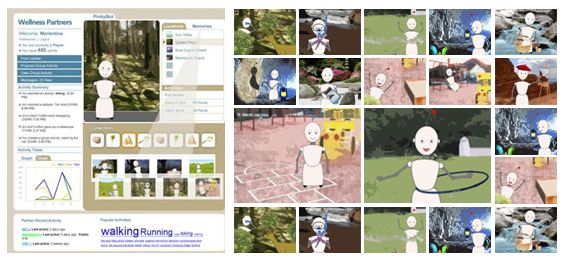By Suzanne Wu
April 18, 2013
Adding social gaming elements to a behavior tracking program led people to exercise more frequently and helped them decrease their body-mass index, according to new research from the USC School of Cinematic Arts, the Keck School of Medicine of USC, the USC School of Social Work and the University at Buffalo, the State University of New York (SUNY).
The project was funded by a grant from the Robert Wood Johnson Foundation’s Pioneer Portfolio through its national program, Health Games Research. The results suggested that “gamification” may improve the effectiveness of traditional health interventions for motivating behavior change and can lead to better health outcomes.
For the 10-week program, researchers studied young and middle-aged adults across a range of lifestyles, from sedentary to very active. Study participants invited someone they knew, usually friends or family members, to participate with them.
***
Gotsis M, Wang H, Spruijt-Metz D, Jordan-Marsh M, Valente TW
Wellness Partners: Design and Evaluation of a Web-Based Physical Activity Diary with Social Gaming Features for Adults
JMIR Res Protoc 2013;2(1):e10
URL: http://www.researchprotocols.org/2013/1/e10/
doi: 10.2196/resprot.2132
